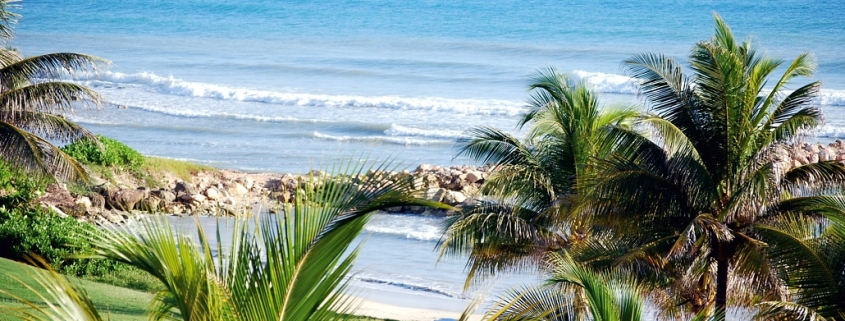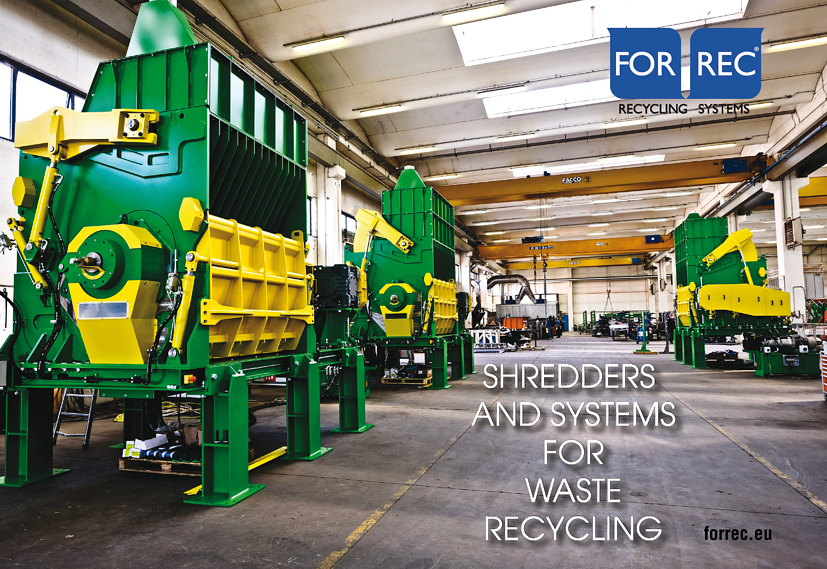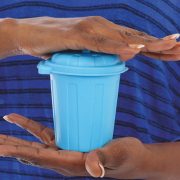Jamaica Begins with Measures for Green Covid-19 Recovery
Jamaica has overhauled its energy policy to create a post-pandemic recovery package anchored in higher carbon emissions targets for farms and forestry.
As reported by non-for-profit organization Sci.Dev.Net in July this year, the island country in the Caribbean Sea hopes to cut emissions by almost one third over the next decade, by optimizing water and energy use and diversifying food production. “The announcement comes as countries worldwide struggle to manage their economies during the Covid-19 outbreak, often using measures many fear will set back sustainability goals.” This year, governments were expected to present ambitious climate plans to meet obligations under the Paris Agreement, the information said.
Jamaica’s new policy is a revision of its 2030 energy policy and includes assessments and modeling to take into account the importance of agriculture and forestry to the economy. “The previous policy reduced the island’s dependency on oil in its energy supply mix, from 95 percent in 2010 to about 50 percent at the end of 2019.” Under the new targets, Jamaica would hope to reduce greenhouse gas emissions from changes in land use, for development and increased agricultural activities, and deforestation by up to 28.5 percent by 2030, Sci.Dev.Net gave account. Agriculture would contribute about six percent to the country’s total emissions, while land-use change and forestry account for 7.8 percent of emissions.
According to Carlos Fuller, a climate negotiator attached to the Caribbean Community Climate Change Centre (CCCCC), Jamaica’s new measures “will create new economic opportunities and generate employment for Jamaicans”. The activities required to achieve the more ambitious NDC (nationally determined contributions) provide “Jamaicans with the opportunity to create new economic prospects, which will generate more employment, capacity building initiatives, development and deployment of new technologies, stimulate foreign direct investment and lead to a healthier and enhanced quality of life,” he told Sci.Dev.Net.
There is hope the country will pave the way for a regional trend towards improved emissions policies. “There will be a significant decline in regional emissions if countries with high emissions like Trinidad and Tobago, Cuba and the Dominican Republic … take Jamaica as a precedent,” CCCCC deputy director and science advisor, Ulric Trotz, was quoted.
Predictions for the island’s economy are bleak, as Jamaica’s government is projecting a 5.1 percent economic contraction. The new energy policy could prove crucial to Jamaica’s economic recovery, Helen Mountford, vice president for climate and economics at the World Resources Institute, is convinced. “Jamaica is taking the kind of action needed both to tackle climate change and rebound from the Covid-19 crisis in a way that will strengthen its resilience to future shocks,” she said.
Developing an integrated waste management
The aim to improve the situation also implies to Jamaican waste management. In March this year, the National Environment and Planning Agency (NEPA) together with the National Solid Waste Management Authority (NSWMA) hosted part one of a policy dialogue session focusing on developing an Integrated Solid Waste Management Public-Private Partnership Project for the country.
According to NEPA’s press release, the dialogue benefitted from presentations made by the heads of ministries, departments and agencies, which provided greater insights into the integrated waste management system that is required to address the nation’s waste management challenges. An update on the intended project was presented by the enterprise team secretariat housed in the Development Bank of Jamaica. In December 2019 and January this year, the Jamaican government – through the Development Bank of Jamaica – had sought for experts “as transaction advisors to assist in structuring and implementing a competitive tender process to select a reputable private investor for a Proposed Integrated Solid Waste Management Project on a design, build, finance, maintain, operate and transfer basis”. The goal is the realization of a public-private partnership project to be implemented over a period of 12 – 16 months. As described, it “will include a waste-to-energy facility with pre-sorting, energy recovery and minimization system to be constructed at appropriate site(s)”. Part two of the dialogue was planned for July 2020; it was intended to bring together the heads of ministries, agencies and the political directorate in the waste management sector.
Jamaica’s waste situation
According to the NSWMA Annual Report 2018/2019 (the financial year ended on 31 March 2019), the organization collected 907,981 tons of residential waste – against a set target of 800,000 tons which was exceeded by 107,981 tons (11.9 percent) – and presented an increase of 231,892 tons (25.6 percent) over the previous period. Nearly 700-thousand tons of solid waste was collected, or over 70 percent of the total solid waste generated island-wide, minister of local government and community development Desmond McKenzie wrote in the report. “Adherence to the collection schedule of once per week in the last financial year was nearly 80 percent, and compliance with the sweeping schedule for major roadways and town centers was almost 90 percent.” The main reasons for this improved performance were the procurement and introduction of new collection units and repairs to dysfunctional units.
As emphasized by the minister, the prevention of unlawful waste disposal and the penalizing of those who persist in this activity is just as important.
In 2019, nearly 17 years since the passing of the National Solid Waste Management Act, 2002, the NSWMA was – by its own account – on the cusp of finalizing three seminal regulations to bolster its mandate as regulators of solid waste management:
- “The National Solid Waste Management (Disposal of Solid Waste Facilities) Regulations, 2019”, which will primarily establish a licensing regime for the operation of solid waste facilities.
- “The National Solid Waste Management (Disposal of Hazardous Waste) (Electronic & Electrical) Regulations, 2019”: Aim is the taking back of certain categories of hazardous waste from Jamaica’s waste stream.
- “The National Solid Waste Management (Public Cleansing) Regulations, 2019”: It is intended to ensure compliance by citizens, developers, organizers of entertainment events and others with provisions to, among other things, prohibit the wanton discarding of solid waste from public and private transportation, littering, prohibiting depositing of solid waste and noxious substances in watercourses etcetera.
As reported, the island’s disposal sites will be profoundly transformed once the government-appointed enterprise team would finalize the development of an integrated solid waste management system “that will engage private investors in the solid waste industry”. Since its appointment, the team had completed a pre-feasibility study wherein it explored options for public-private partnerships (PPPs). “These potential changes will see an integrated solid waste management system (ISWMS) in which every type of waste will be transformed into some form of value-added product,” NSWMA wrote.
Impact of Coronavirus
Like other countries in the world, Jamaica suffers from the novel coronavirus, Covid-19 and the measures adopted by the government to limit its spread. Therefore, the performance of the country’s economy is negatively impacted: In the first quarter of 2020, it declined by 2.3 percent when compared to the similar quarter of 2019. “This was the result of declines in both the services and goods-producing industries of 2.5 percent and 1.9 percent respectively,” the Statistical Institute of Jamaica informed at the end of June. According to the World Bank, Jamaica and its population of 2.93 million people are also vulnerable to natural disasters and the effects of climate change. The country “is an upper-middle-income economy that is nevertheless struggling due to low growth, high public debt and exposure to external shocks”.
In 2013, Jamaica launched an ambitious reform program to stabilize the economy, reduce debt and fuel growth, and to gain national and international support, the World Bank gave account. Public debt fell below 100 percent of GDP (gross domestic product) in 2018/19 and is expected to decline below 60 percent by 2025/26, in line with the provisions of the Fiscal Responsibility Law. The rate of unemployment also fell to a historic low of 7.2 percent in October 2019, “which is almost half the rate at the start of the reform program”.
Opportunities
Jamaica continues to welcome investors from across the globe, the governmental agency JAMPRO assures on its homepage. The national agency promotes business opportunities in export and investment to the local and international private sector. For example, the webinar “Jamaica: Scaling up investment in Clean Energy” organized at the end of July this year, revealed information about Jamaica’s Integrated Resource Plan (IRP), which is the country’s 20-year plan that describes the annual generation capacity requirement for the period 2018 – 2037. The overall energy target to be achieved by the year 2037 is 1,260 MW (megawatts) of wind and solar, 330 MW of LNG (liquefied natural gas) and 74 MW of hydro/biomass/WTE.
The event officially kicked off JAMPRO’s energy promotion activities for the second half of the year, as the agency seeks investors to join other renewable energy projects like Wigton Windfarm and Eight Rivers Energy Company’s Paradise Park Solar Farm.
(GR32020, Page 5, Photo: jemacb / Pixabay)










